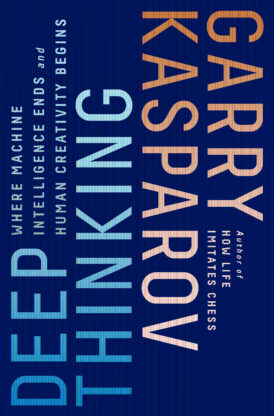“Dictators never ask why. It’s always, why not? Anything that works, anything that helps [Putin] to stay in power, to increase his influence, is good [for him],” Kasparov told me. (Our full conversation is posted online at “You Decide,” my podcast.)
“For me, it was so obvious that Putin has been building in Russia since 2004-2005, the troll factories, the fake news industry. And he successfully tested it in the neighboring countries with a big chunk of Russian-speaking population. And then he moved to Europe. Eventually he would try to interfere in U.S. elections. Why not?”
Unlike the ideological combat of the Cold War, says Kasparov, Putin isn’t trying to make anybody believe anything.
“The good news is that you don’t have an ideology like Communism that is trying sort of to conquer the world — but I think it’s even worse,” Kasparov says. “When somebody is trying to sell you something, you can always look though it for gaps and for flaws. Putin doesn’t sell you anything; it’s all about doubts. I call him the merchant of doubt.”


